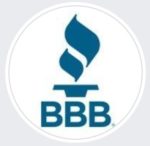
Special to IFN
Attending local festivals and events is an exciting way to celebrate the holiday season. Many retailers turn to these events and set up temporary pop-up shops or booths to sell their merchandise. This gives shoppers the opportunity to browse unique holiday gifts and other merchandise in person.
The BBB receives complaints each year about temporary retail locations and pop-up shops. Consumers report everything from poor-quality merchandise to online purchase scams when ordering from the pop-up retailer’s website. They also report having difficulty obtaining refunds after temporary stores have closed their doors.
One consumer shared their experience shopping with a pop-up vendor at a fair: “[I saw] her booth at [fair name redacted] the last Sunday in June 2024. She was selling custom hoodies and other shirts. She did not have what I wanted so I placed an order. She promised it would be shipped. I sent several texts and nothing but excuses and she won’t return my money.”
BBB Tips
Pop-up shops can be fun, but keep the following BBB tips in mind if you choose to buy from one of them:
● Ask how long a store will operate. If you are buying from a seasonal store, ask whether it will be open after the holiday and whether it will accept returns when the season is over. If not, consider buying elsewhere or taking more time to be sure the item is exactly what you want.
● Review purchase policies. Determine the company or vendor’s refund and return policies before you buy. If pop-up shops cannot offer concrete commitments on how they will handle any potential problems you may have with their products or services, reconsider buying anything.
● Be careful when placing orders. If the pop-up shop offers to place a special order for an item you’re looking for, take extra steps to ensure it’s legitimate. Before placing the order, ask the seller for their contact information and confirm it works. Get details on how you will receive the order and when you should expect it to arrive and ask for a receipt and/or a copy of the order confirmation. Pay with a credit card so you have additional protection in case you never end up receiving the item.
● Pay attention to quality. Occasionally, pop-ups sell counterfeit products, so be cautious when purchasing designer goods or the latest “must-have” gifts. Prices that are dramatically lower than regular retail stores may be a red flag that the items are either stolen or counterfeit.
● Know the terms of any product or service guarantees. If you are purchasing anything that comes with a manufacturer’s warranty, ask how you will be able to get the product serviced if needed.
● Guard your personal information. For small items, you might be better off paying in cash so you don’t have to share any personal information. Just be sure you understand that you probably won’t have any recourse if something is not right. For larger items, paying with a credit card can provide additional protection if there are problems and the retailer disappears.
● Consider whether the gift is for a hard-to-please recipient. If you are planning a gift for someone who might need or want to return it, consider buying from a retailer with a long-standing business, strong reputation, and well-established return policies, instead of a pop-up shop. Look to BBB Accredited Businesses to shop from a vetted, trusted business.
● If shopping online, do your research first. If you are interested in trying a new or unfamiliar online merchant, do your research. Ask the company for its physical location (address and phone number) so you can check its BBB Business Profile at org. Check to see if the business is BBB Accredited so you know whether you are dealing with a trustworthy business.
● Shop around. Pop-ups often focus on unique or high-quality gifts that you may not find elsewhere, but some are simply mini versions of discount retailers, offering holiday-themed goods that may be available for less at a traditional retailer.



